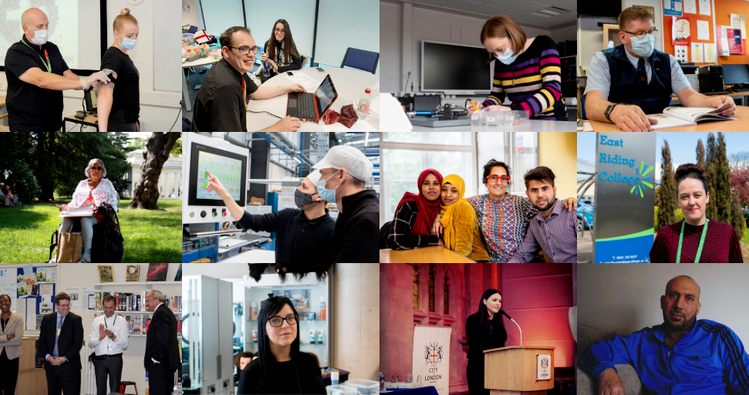Communication and creativity ranked highest skills for future manufacturing engineers

The Institution of Engineering and Technology (@iet_lucknow) and the Institution of Mechanical Engineers (IMechE) have published a report exploring the views and thoughts on the future manufacturing engineer.
A knack for creativity and design, coupled with specialist skills in automation, robotics and mechatronics are now the suite of skills ranked highest to fulfil new and emerging roles in manufacturing, a new engineering industry survey finds.
The ‘Future Manufacturing Engineer’ report has been jointly conducted by the IET and IMechE and peer reviewed by members of IMechE’s Manufacturing Industries Division and the IET’s Design and Production Sector.
The results show a clear pathway for the industry’s skills needs over the next 10 years, paving way for the adaptation and creation of appropriate vocational learning and training for engineers at all levels to help combat the increasing skills gap.
The survey reveals that skills in automation, robotics and mechatronics are thought to be the most important for manufacturing engineers (84%) in the next ten years. These skills were followed by artificial intelligence (69%) and sustainable, lean, resource efficient, manufacturing (65%), but barely 32% feel major change will occur in the next five years.
Communication skills, creativity and design thinking were ranked as the top three non-engineering competencies of ‘highest importance’ for future manufacturing engineers. Energy, transport, and the circular economy were perceived as the top three challenge areas where manufacturing engineers can make the most significant contribution.
IET President, Professor Danielle George, said:
“We wanted to find out what the future manufacturing engineer might possibly look like and what key skills engineers will need to survive and thrive.
“The topics in the survey questionnaire focused on how manufacturing engineering roles may change in the future, which competencies will be most important, and where manufacturing engineers can make the most significant contribution to finding answers to some of humanity’s greatest global challenges.”
IMechE President, Peter Flinn, said:
“The results confirm that we need to prepare for the rapid changes and major programmes of investment that will affect manufacturing industry. Organisations that educate and employ engineers and technicians must ensure that their current and future workforces keep pace with these developments.
“Professional engineering institutions can help training providers by working with them to evolve their curricula. We will also continue to provide cutting edge continuous professional development opportunities for our members and for the engineering profession as a whole.”
The report details recommendations for recruitment, education and other relevant professional engineering institutions which include investing in people to bring out their ideas, agility and contributions, collaborating widely with others, especially non-engineers, to detect change coming and to support the UK sector embracing and exchanging ideas with others across the world to ensure productive manufacturing for all.
The feedback received will help the IET and IMechE to inform the forward programming and manufacturing priorities of both institutions and create opportunities for further collaboration.










Responses